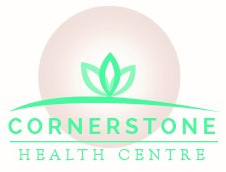Chiropractic Relieves Disc Herniation Related Pain Often Without MRI
MRIs are cool. MRIs display pretty pictures of the body. Chiropractors appreciate spinal MRI images. Why? The spine is your Georgetown chiropractor’s realm! Dr. Butwell values the MRI image study for what it is: a tool. But MRIs are not always clinically necessary. Can MRI help determine whether a surgical or non-surgical approach is appropriate for back pain relief? Read on for the latest findings.
The Usefulness of MRI
When a Georgetown patient’s back pain, neck pain, arm pain or leg pain symptoms indicate the need for an MRI, Dr. Butwell arranges one for such a Georgetown back pain patient. MRI may supplement your Georgetown chiropractor’s clinical understanding of the condition oftentimes (but not always!). Pre-treatment and post-MRI images are intriguing. Did the disc herniation reduce now that the pain disappeared? Georgetown chiropractic patients will often ask that of Dr. Butwell. And researchers will consider MRIs for their research studies on just such a question.
The Curiosity of MRI
Researchers aren’t the only ones who curiously look at MRI images of low back pain sufferers to check if there is any correlation between pain and no pain and the MRI pre and post treatment for back pain. Patients wonder, too. Dr. Butwell is well aware that our Georgetown back pain patients wonder!
Knowing that doctors and patients dealing with back pain like MRIs, a group of researchers planned to determine the value of MRI in predicting treatment outcomes in patients who had a herniated lumbar disc with sciatica. They questioned if MRI could help determine whether to do back surgery now or stay the course with conservative care. Dr. Butwell and the Georgetown chiropractic low back pain patients we treat would love such a simple guide! Study participants were randomly sent to surgical care or a course of prolonged conservative care. Two findings – a disc extrusion and nerve root compression on MRI in patients with less severe leg pain – signified a satisfactory outcome with either form of care. Another interesting finding: the size of the disc herniation at the beginning of care didn’t affect the outcome. The two groups revealed significant difference in outcomes between them – surgical and conservative. (1) Dr. Butwell sees similar reports increasingly in the back pain research. Recall the Atlas studies of surgical and non-surgical interventions for back pain and sciatica? There wasn’t much variation in those landmark studies either: 50% versus 53% non-surgical versus surgical for back pain due to spinal stenosis (2) and 69% versus 61% surgical vs. non-surgical for sciatica (3).
Dr. Butwell Offers Chiropractic Non-Surgical Care of Disc Herniation
Dr. Butwell asks you to make a Georgetown chiropractic appointment today. Trust Dr. Butwell to provide evidence-based chiropractic care that alleviates your spine pain many times without an MRI. Together, we can create a non-surgical (and even potentially non-MRI!) treatment plan to alleviate your back pain.
Schedule your Georgetown chiropractic appointment now.

